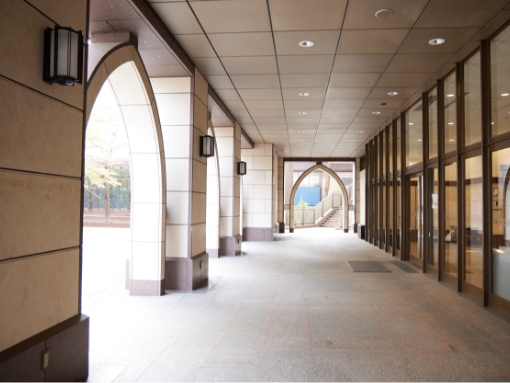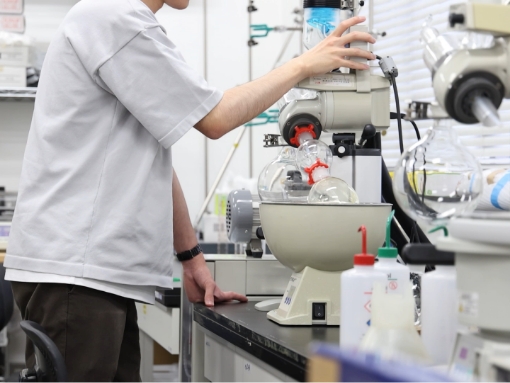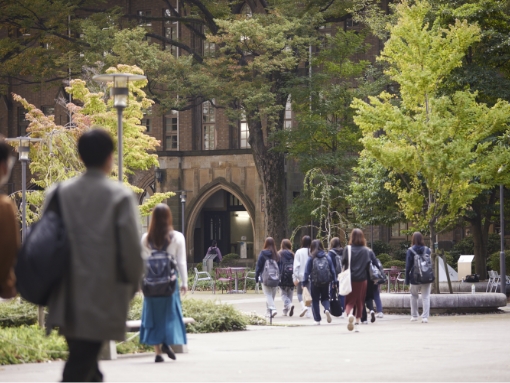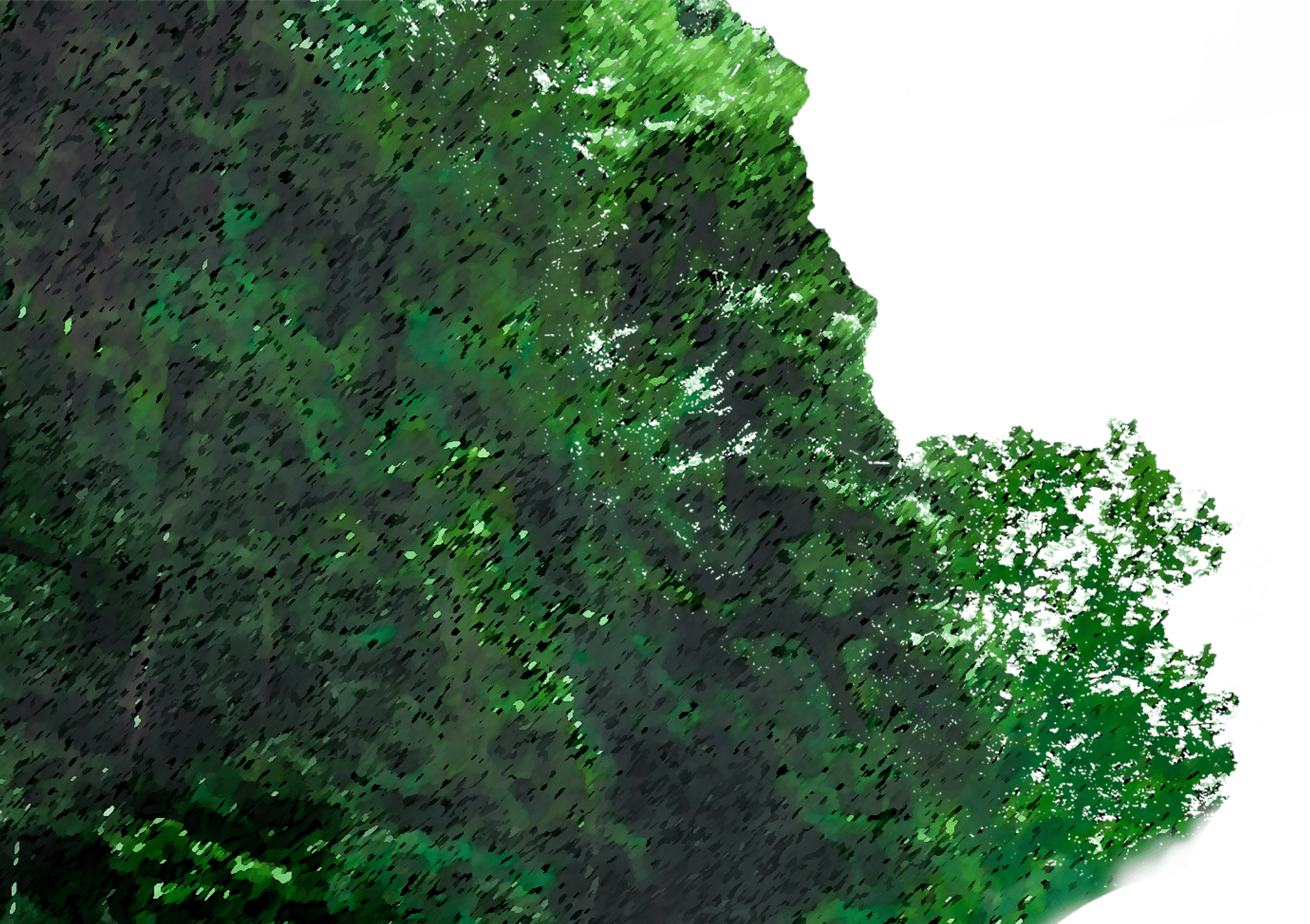
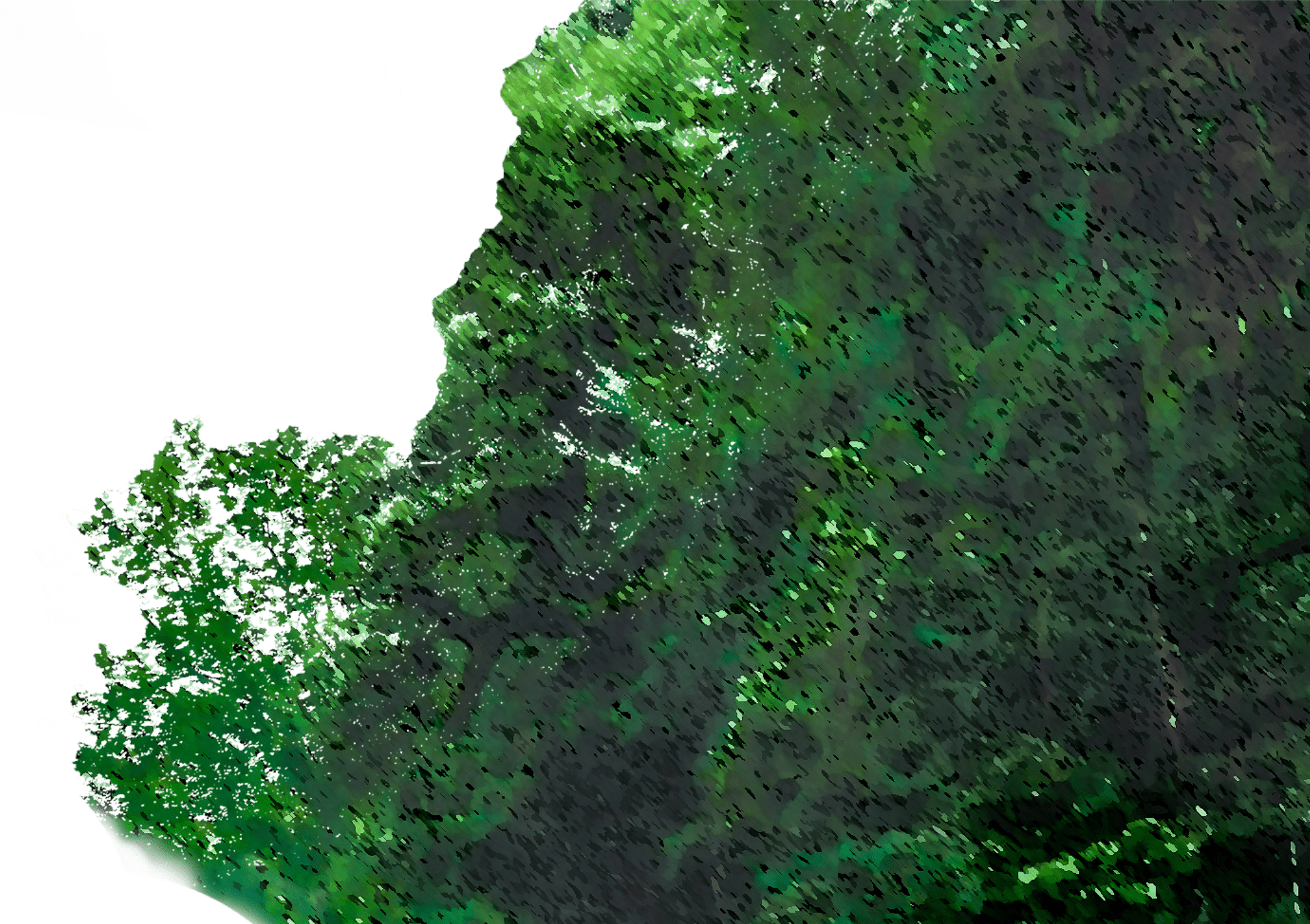
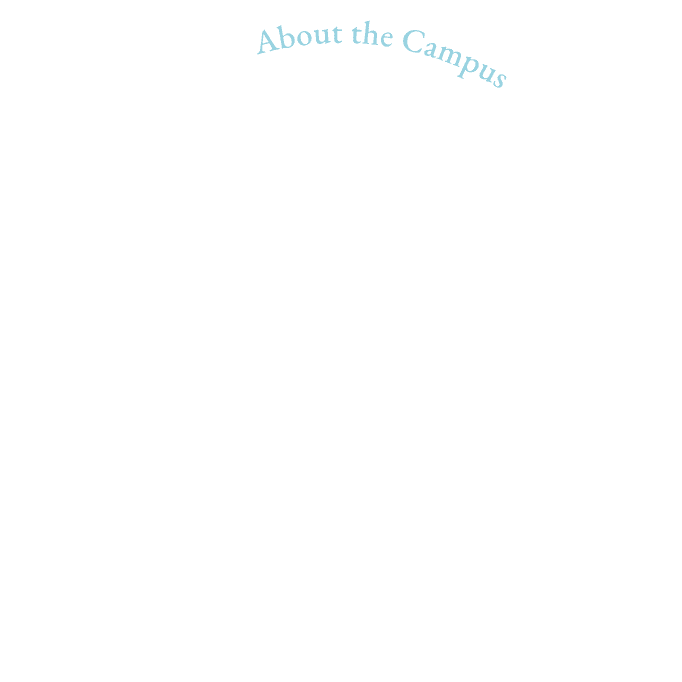

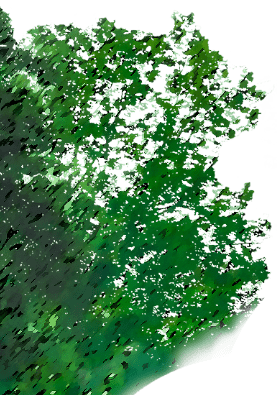
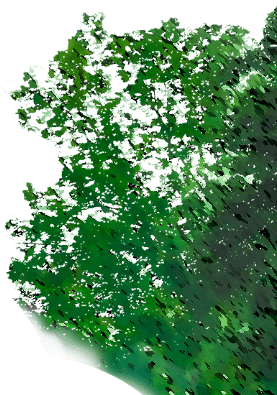
History and
Evolution Resonate
Mejiro no Mori
Students and faculty interact to create new knowledge
in a learning environment
where historical buildings provoke emotions,
and state-of-the-art facilities are in harmony.
Study Hub, East Building No.1
In April 2023, the new building No. 1 was built as a new learning hub. The second floor to the eleventh floor is the University Library. It houses an enormous collection of books. It also supports a variety of learning styles, including group learning rooms, individual learning rooms, and active learning areas. The University has created a place where students can interact and learn from each other.
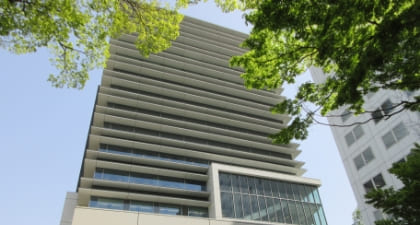
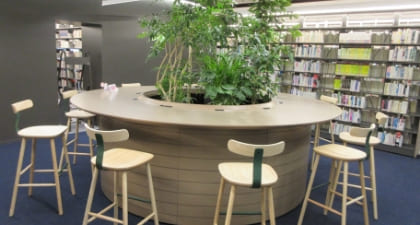
Enriched educational environment
Gakushuin University has 5 faculties and 17 departments. Graduate students study at the Mejiro campus.
By utilizing East Japan's largest credit compatibility system (f-Campus), which allows students to select subjects of interest from lectures at five, nearby universities (Gakushuin Women's College, Japan Women's University, Rikkyo University, and Waseda University), students are able to interact with many other young people beyond the boundaries of the University. This is an environment that takes advantage of its location to deepen student learning from a broad perspective.
Also, in 2026 Gakushuin University plans to establish the Graduate School of International Social Sciences and, through the merger with Gakushuin Women's College (Toshima,Shinjuku-ku), the Faculty of International Social Sciences and Graduate School of International Social Sciences (both at the Toshima Campus). This expansion is one more step in advancing and developing the University's academic activities.
Note: School establishment plans are subject to change.
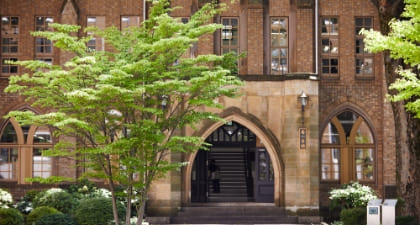
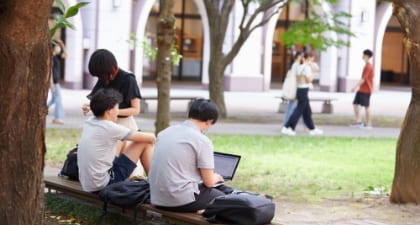
Spun Ideals
The first president of Gakushuin University, Yoshishige Abe, laid the foundation for the new Gakushuin University by stating as a distinctive feature of the university, "cultivating international knowledge, mastering foreign languages and understanding the living reality of the world and Japan, and furthermore, fusing East and West, Japan's great ideal as a cultural nation." That philosophy has been handed down to us. It is now utilized in the education at the university as a university policy.
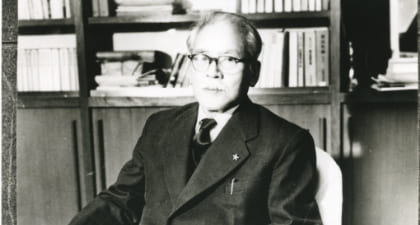
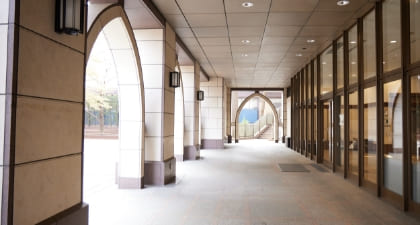
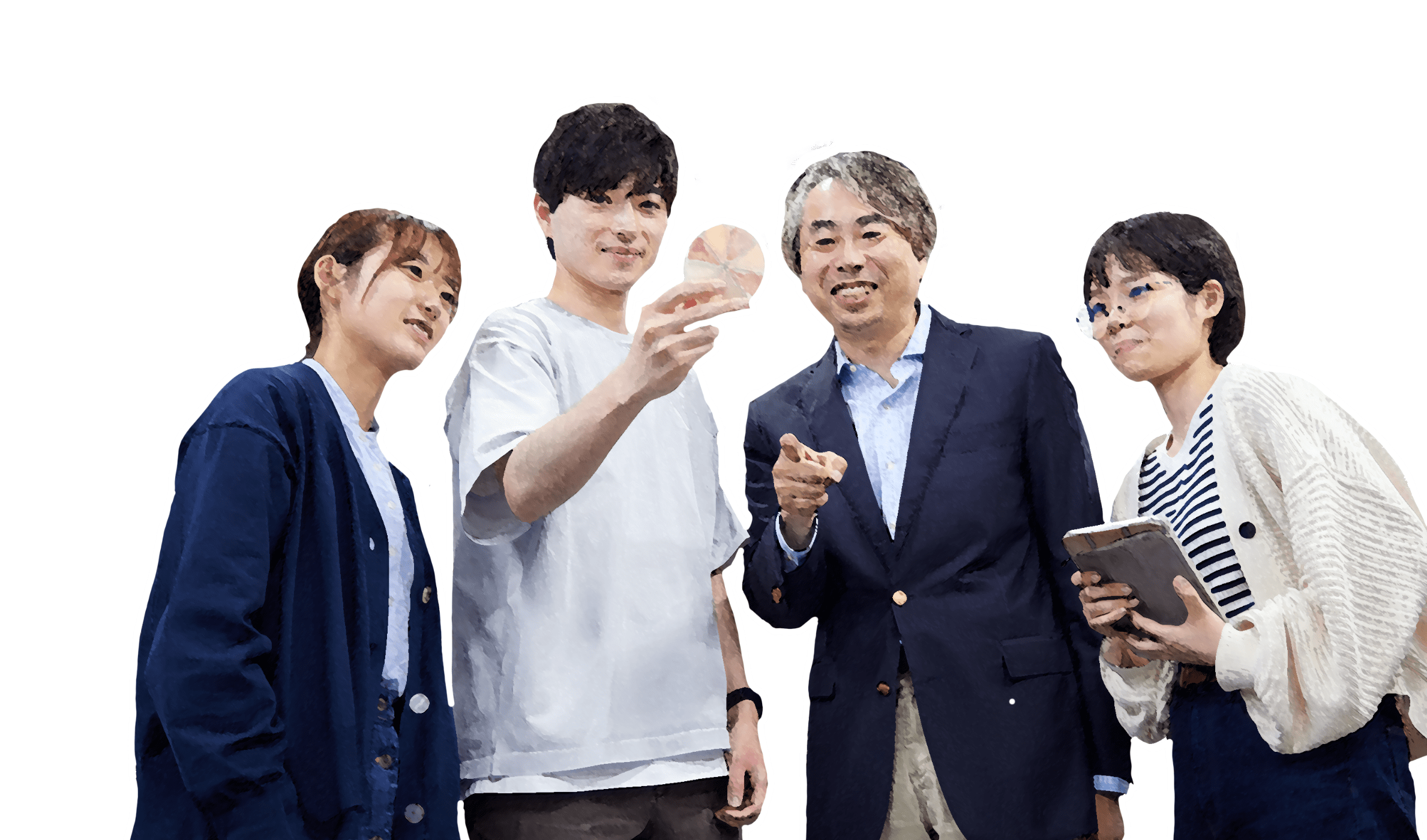

New learning
for students who
improve each other
Gakushuin University brings out the possibilities
that each individual student has by learning
the fusion of the humanities and
science beyond the boundaries of academic fields,
and small group education where teachers and
students learn each together through
a mutual dialog.
Individuality fostered by small group learning
Of the approximately 70% of the course subjects, the University offers learning in small groups with no more than 30 students per group. Students can further deepen their learning by our creating an environment where the distance between students and faculty is close and where they can consult in an at home environment. In addition, the University cultivates an attitude of each student participating in the class independently and proactively.
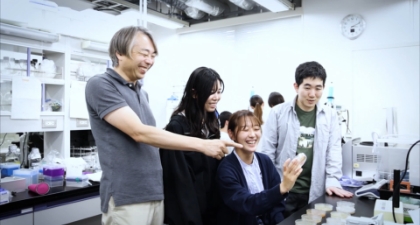
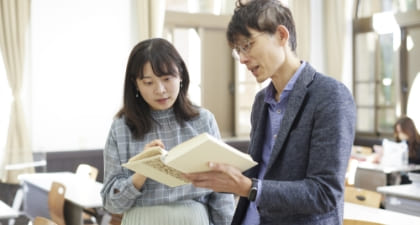
Learning in the fusion of humanities and sciences
The University has accumulated research in the fields of humanities, society, and natural sciences, from basic to applied. As an educational research activity through knowledge that links and integrates these, the University has launched a space utilization theory for all undergraduate students from 2023. Space utilization theory is a new academic research proposed by Gakushuin University that focuses on the development and use of all celestial bodies and space including Earth. The University provides a place for comprehensive learning and practice that transcends the boundaries of the liberal arts and sciences, and cultivates leaders who will be active in our future society.
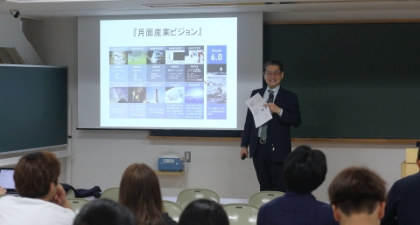
Environment and curriculum to develop the culture of data science
Started offering a data science minor program in 2023. It is possible freely to combine courses to fit each student’s background and career orientation from among the rich lectures divided into three subject groups of information literacy subjects, information education subjects, and data science subjects. By studying data science and AI used in a wide range of business situations as a second specialty area, students can aim to become a human resource who will play an active role in a wide variety of industries.
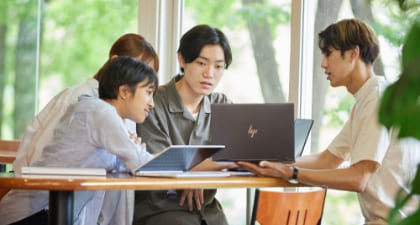



Emerging research
will continue
to evolve today.
The University has an environment and
a full facility in which students can immerse
themselves in their own research while
remaining intellectually curious,
under a team of professors active
at the forefront of each field.
New interdisciplinary life sociology
The University has created a new interdisciplinary field called "Life Sociology" to deepen integrated discussions through collaboration between the humanities and science in order to respond to a super-aged society. Taking advantage of the unique characteristics of the University, Gakushuin promotes research in the fields of dementia, cancer, aging, and regenerative medicine from a comprehensive perspective of health science, legal support, philosophy and bioethics, psychology, and economics and management, and strives to extend the expectancy of a healthy life.
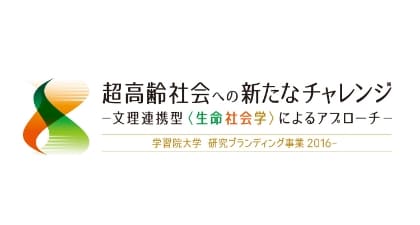
A top 3 university for 4 years in succession of all private and multi-faculty universities* in Japan
In FY2024 Grant-in-Aid for Scientific Research promotion (KAKENHI), the uptake rate for new topics at the School was 40.3%*, the Eighth-highest figure among all research facilities in Japan, including universities. It ranked second among private universities and universities.
For 4 years in succession, Gakushuin University has ranked in the top 3 of Japan's private and multi-faculty universities. Also, in new hires in basic research (S), the University was the only private university in major ranking category A (humanities and social sciences). These results testify to the high regard in which our scientists' research activities are held and the effectiveness of our research support programs.
* Universities having faculties in humanities, social sciences and natural sciences, December 25, 2024
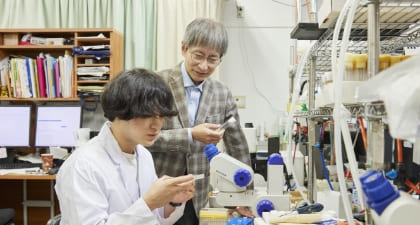
Full Facilities
The university has five affiliated research facilities. Namely, they are the Basic Physics Research Centre, the Institute for Legal Research and Practice, the Research Institute for Economics and Management, the Research Institute for Humanities, and the Institute for Biomolecular Science. Each laboratory conducts exchanges and joint research projects with researchers in Japan and overseas. The University has created an environment in which research can be conducted at a higher level.

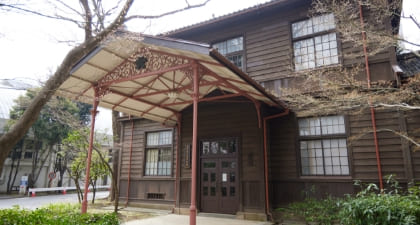


Impact on
Society from
Mejiro
In addition to returning the results of educational and research activities to the local community, Gakushuin University promotes cooperation with the local community as an opportunity to solve
social issues and create new value.
Volunteer Activities in Touch with the Community
Gakushuin students serve the community through extramural and other activities, conducted in partnership with Toshima Ward. For example, the Social Services Research Association operates Toshima Chiiki Miraijuku, to give junior high school students one more place to hang out, while SEM conducts cultural and international exchange events to make Toshima Ward a beacon of cultural mutual respect. Gakushuin University proudly cultivates people who can take action to make the world a better place. Here, too, Gakushuin students practice “innovation with a heart.”
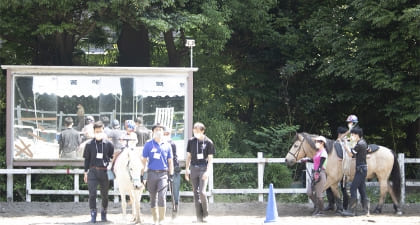
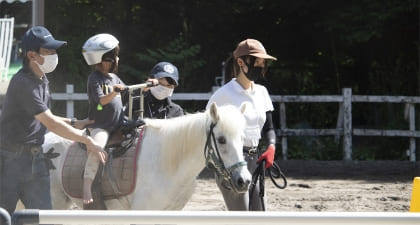
Provides a place for lifelong learning
In March 2025, Gakushuin University Museum of History reopened as Kasumi Kaikan Memorial Gakushuin Museum following major renovations.
The Museum, which houses a collection of more than 250,000 objects, is open to the public. Exhibitions and lectures are held at the Museum on a wide variety of historical, artistic and cultural themes. Using the latest scholarly findings, the Museum unravels historical and cultural topics related to the Imperial Family, with whom Gakushuin University has a deep connection, and relates the story of the University's evolution over nearly 150 years.
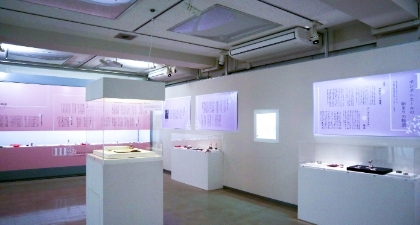
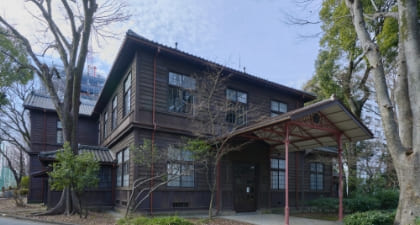
Collaboration with Toshima-ku
Gakushuin University cooperates with Toshima-ku to offer Gakushuin University Gakushuin University Wakuwaku Toshima Japanese Class. The University provides opportunities to foreigners living in Toshima-ku to learn daily conversational Japanese language, and Japanese culture. The teachers of this program are graduate students majoring in Graduate Course in Japanese Language and Literature who are learning how to teach Japanese language. It has also become a valuable place to gain practical experience for students. In the future, the University plans to continue to act as a hub for the local community.
 Unchanging thoughts,
Unchanging thoughts,
and deepening learning
Since its founding in 1949,
Gakushuin University has evolved
with the changes of the times.
Based on the tradition
that the University has been built,
in the future,
the University will continue to
innovate with heart.
Seven Tangible cultural propertys registered on campus
In Meiji 41 (1908), Gakushuin University moved from Owari-cho, Yotsuya-ku to Mejiro. Since then, the seven remaining buildings on the Mejiro Campus, Higashibetsukan, Kitabetsukan, the Main Gate, the stable, Nogikan, Minami No. 1 kan, and Nishi No. 1 kan, were all designated as National Registered Tangible Cultural Properties in March 2009. The University's tradition and history continue to live and breathe on campus.
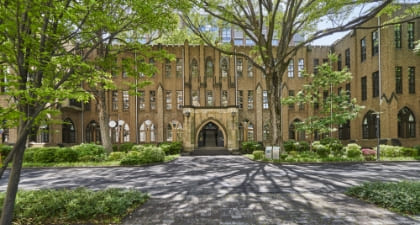
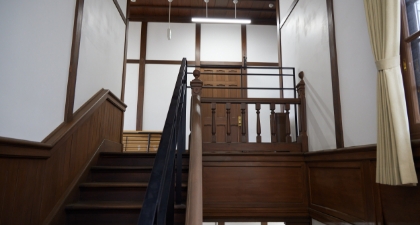
Further evolved through Gakushuin Grand Design 2039
Now that the world and society have changed drastically, we have formulated “Gakushuin University Grand Design 2039.” This is the landmark for how we will implement the philosophy that we have been upholding since our founding. With the educational goal of strong creativity and rich sensitivity with a broad vision, the University shows specific key measures in four items. Namely, they are education, research, social cooperation and social contribution, and university management. Gakushuin University will steadily move forward towards implementing these.
High-school and University partnership for higher learning
The School partners and cooperates on educational research focusing on high schools, leveraging the university’s R&D capabilities, personnel and other resources. The purpose of these efforts is to contribute to the improvement and development of high-school education and the cultivation of promising individuals for the future. As part of this cooperative relationship, every year the School conducts training sessions, information-exchange meetings and the like on topics of current interest, targeting related personnel at universities and affiliated schools. Going forward, the School intends to strengthen its cooperation with affiliated schools, implementing a wide range of initiatives for the improvement and development of education.
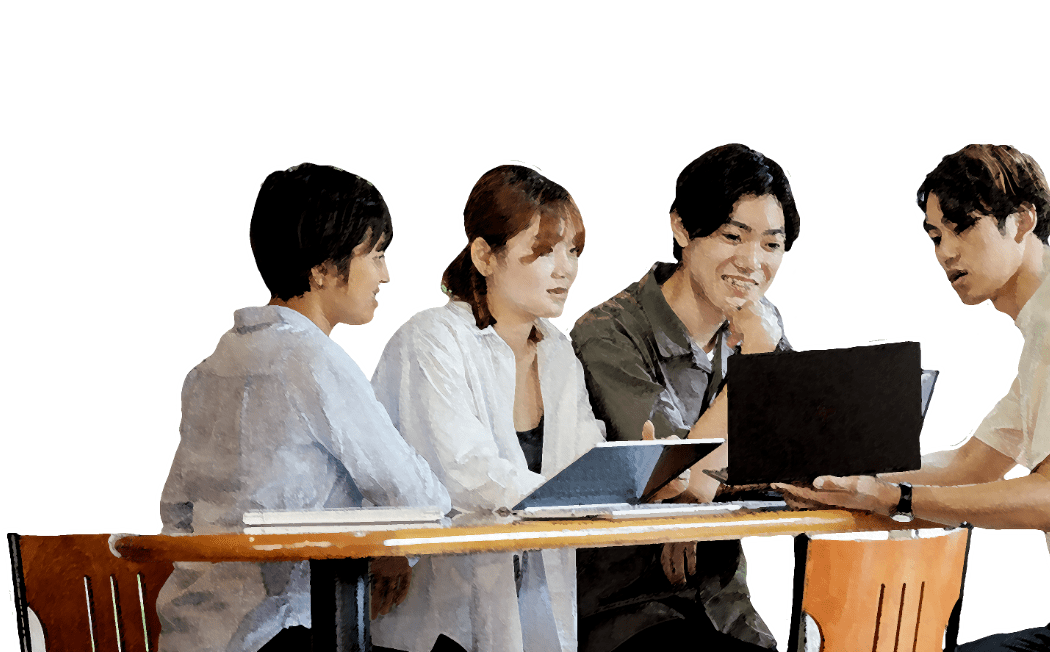
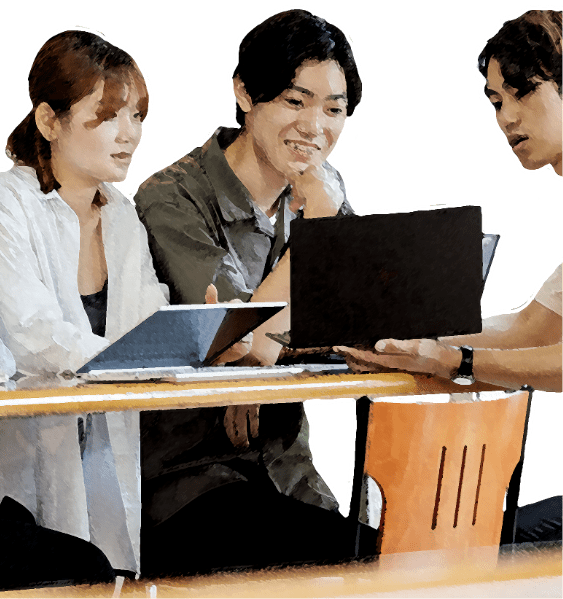
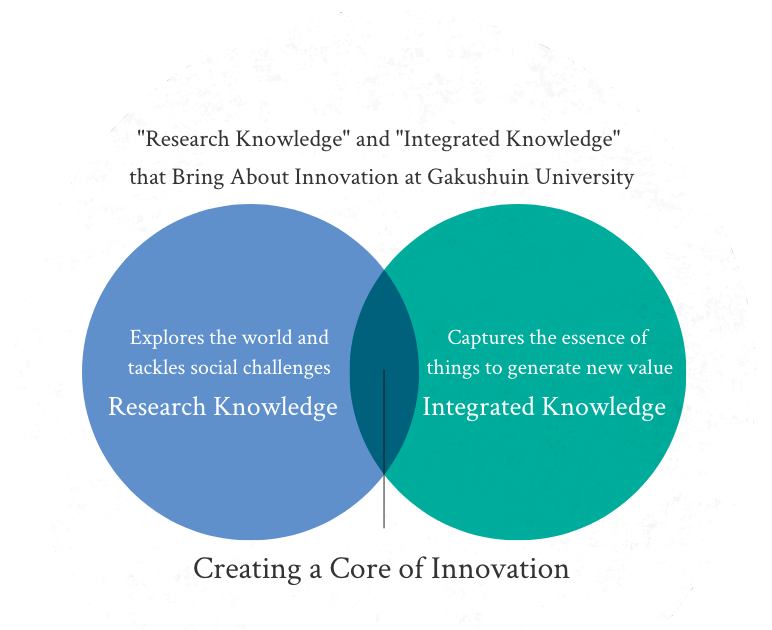

Creating a core
of innovation
"knowledge"
Nurturing research knowledge and integrated knowledge
at Mejiro no Mori where all faculties and
all grades of students gather, and
nurturing the ability to survive in an era where
it is difficult to predict the future.
T-type human resource training with professional learning and learning with the fusion of the humanities and sciences
A team of professors active on the front line develops a variety of classes in each department. It is possible to pursue specialized fields while receiving sincere and careful guidance from instructors and acquire advanced knowledge and skills. Also, in common courses university wide that develop students beyond the boundaries of the faculty and departments, students can acquire a wide range of education. Our educational system, which organically connects specialized learning and inter-disciplinary learning, trains T-type human resources with unwavering professionalism and flexible interdisciplinary attitudes.
Common courses university wide explore a new approach through the integration of the humanities and sciences
Common courses university wide that can be freely selected and studied not only according to the student’s own specialty, but also according to their interests. We offer a wide range of subjects, including basic educational subjects, information subjects, foreign language subjects and sports and health science subjects. Interdisciplinary learning across disciplines fosters comprehensive competence and broad and deep education, and develops the student’s ability to continue to stay alive throughout life.
Minor system allows students to develop their own strengths
The University offers a system of minors in three fields: Data Science, Japanese Language Teacher Training Program (Minor), and Gender Studies. By pursuing specific topics according to the student interests in addition to their normal undergraduate studies, students can explore the contents of their major from other perspectives or use the completion certification to develop their career.
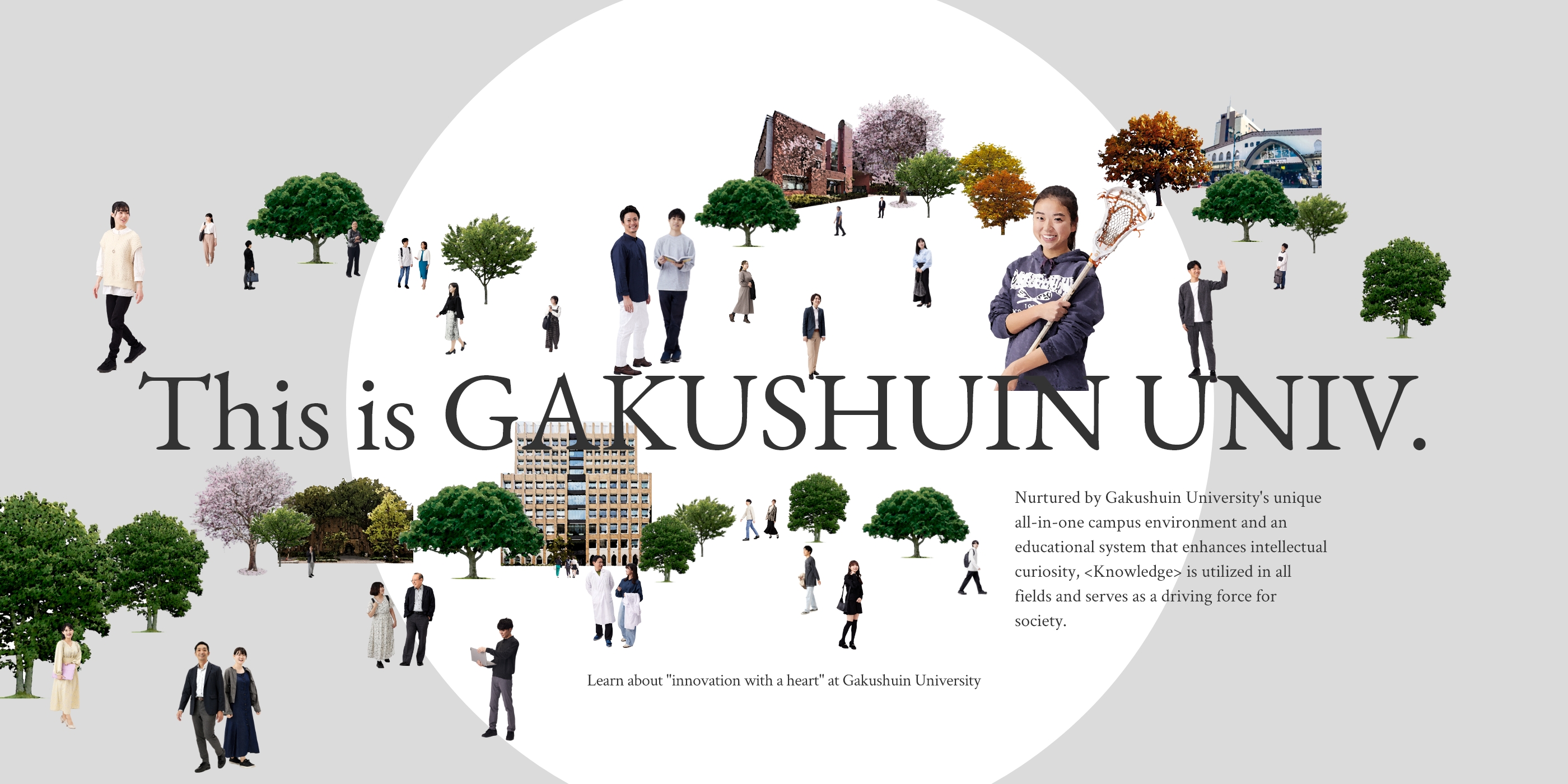
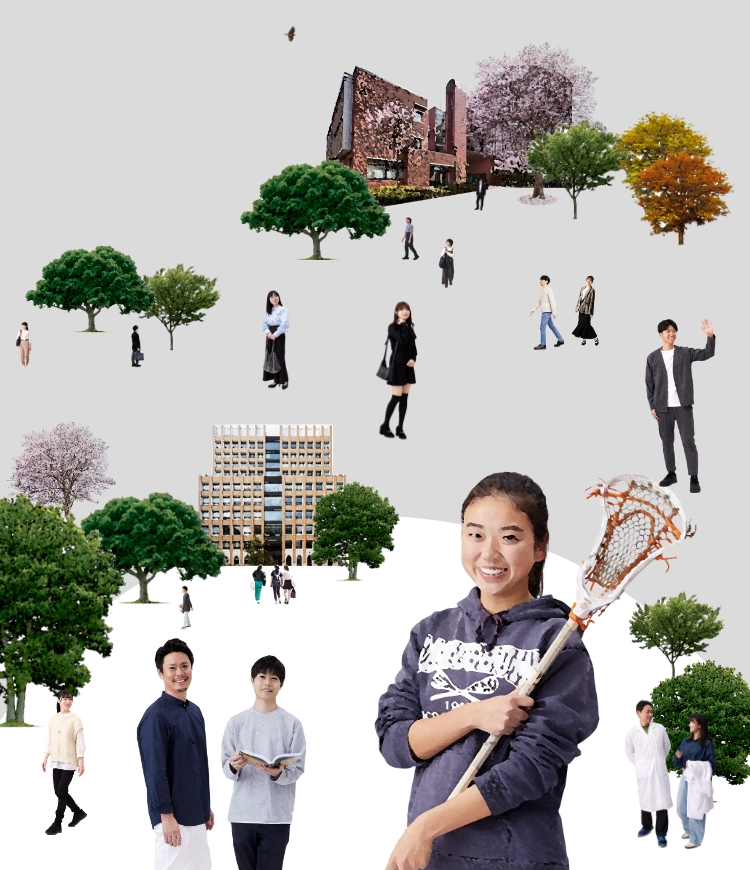
This is
GAKUSHUIN
UNIV.
Nurtured by Gakushuin University's unique all-in-one campus environment and an educational system that enhances intellectual curiosity,"Knowledge" is utilized in all fields and serves as a driving force for society.
Learn about "innovation with a heart" at Gakushuin University
GAKUSHUIN Knowledge Search

